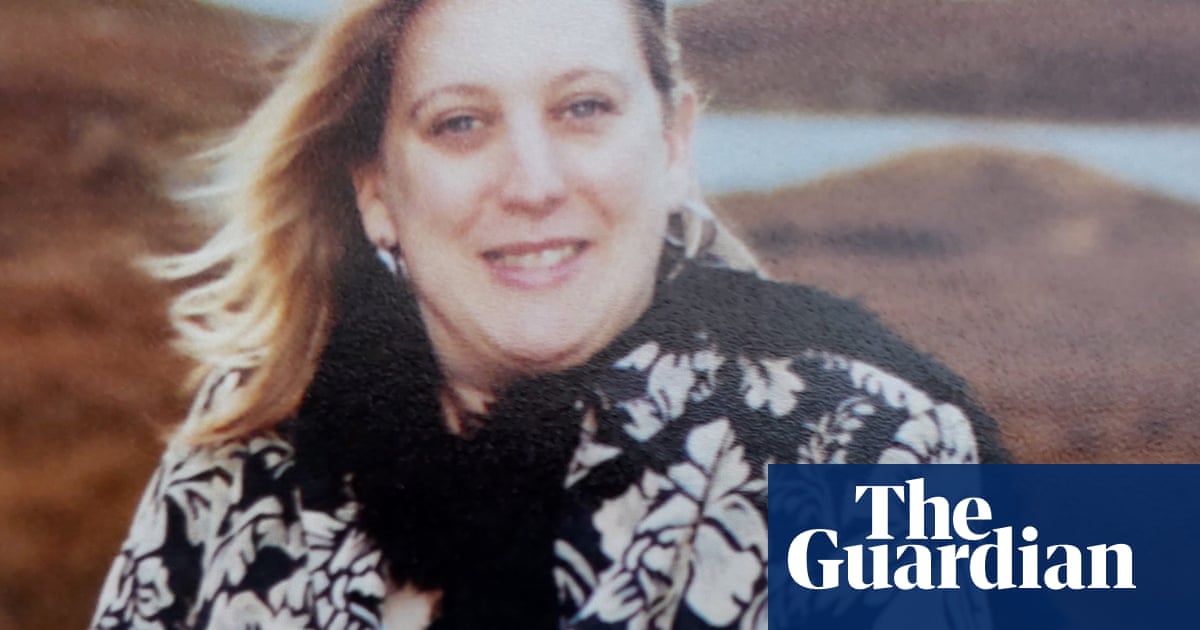
In 2018, Stephen Fretwell was sitting in a class at the college where he had enrolled to do an A-level crammer course when a notification popped up on his phone. It was a link to a Pitchfork story about Arctic Monkeys recording a version of a track from his 2005 album Magpie. Fretwell watched in quiet astonishment as some of his classmates, almost half his age, opened the same news story on their phones and began openly discussing this unknown singer-songwriter that their favourite band had covered.
Fretwell stayed quiet. His new album, Busy Guy, is out this week but, at that point, he didn’t feel like much of a singer-songwriter at all. Magpie reached the Top 30 and he was called up to support Oasis, Elbow, Keane and others, but 2007’s Man on the Roof was followed by an extended period of musical inactivity. Years went by where he didn’t pick up a guitar, his life instead centred on being a stay-at-home dad to his two sons in Brighton. Fans wondered where he had gone, imagining some mythical rock’n’roll recluse. Not exactly: prior to redoing his A-levels with the intention of going to university and studying law, he was washing pots in his local Wetherspoons.
“When my kids were born, that changed everything,” says the amicable 39-year-old, sipping a pint at a cafe in London’s Regent’s Park on a sunny June afternoon. “I think it was assumed that I was being a bit difficult and enjoying the idea that I would be like a Searching for Sugarman-type character.” The truth is that Fretwell, who was diagnosed with ADHD two years ago, was uncertain if he could juggle being a new father and a songwriter at the same time. “I was safeguarding things that matter, because I knew I would get both things wrong,” he says. “And, with the children, there’s no way I’d have allowed myself to get that wrong.”
The news that Arctic Monkeys had covered Untitled wasn’t a surprise for Fretwell. He had found out a week before through his exasperated manager, who also represents the Sheffield band and had stuck with Fretwell throughout his dormant years. “He called me up and said: ‘What the hell are you doing, Stephen? Are you ever going to do some music again? Alex recorded one of your songs, imagine how many songs he could have chosen from on the planet?’”
Finally, something was sparked. Fretwell put his plans for a law degree to one side and got back in touch with his younger self, the the driven lad from Scunthorpe who had a knack for turning mundane, everyday tales into delicate ballads. The sardonically titled Busy Guy is a beautifully stripped-down acoustic record that recaptures what made him special in the first place, now with added mid-life poignancy. It underlines his appeal to indie rock frontmen with a taste for poetic turns of phrase. As well as Alex Turner, for whom he has played bass in the Last Shadow Puppets, Fretwell also has devoted fans in Courteeners’ Liam Fray and Elbow’s Guy Garvey. James Corden was so enamoured with his music that he used one of his songs, Run, over the closing credits of Gavin & Stacey.
Fretwell’s artistic re-emergence has come at a price, however. “I realised I was gonna have to take a leap that would probably cost me my marriage,” he says. “And it did. I knew that if I was going to go hell for leather to make an album that would end up being good enough, it wasn’t going to happen overnight and I knew my wife would not be able to handle the uncertainty of whether it was going to come off or not.”
At a couples therapy session, his perceived foolishness was laid down for him by a marriage counsellor. “The therapist said: ‘This relationship is over. You say you’re going to become a musician, at your age, when you’ve not done it in all this time!’ My wife was clearly terrified about who she’d married, like: ‘Is this guy insane?’”
The therapist suggested Fretwell live in London on weekdays to write music and return to his wife at weekends. He moved into a flat-share in Highgate but, as the songs for Busy Guy came flooding out, the couple’s marriage crumbled under the strain. “I always knew I would be better off putting all my efforts into the kids than attempting to provide financially,” Fretwell says, his voice tailing off. “It was a really hard thing for my wife to go through. I suppose it looked, understandably, to her, that all of a sudden, I just decided that I’d ponce off to a music studio all day. We’ve not got any money. So I’d be going home and say, you know, ‘I’ve been offered a publishing deal for 20 grand, but my manager says I shouldn’t take it’. You know, the stresses that that puts on a family.”
We finish our drinks and Fretwell says he fancies a stroll in the sun and will walk me to the tube station. I ask what his ex-wife thinks of the record. “I think some part of me imagined that she’d hear it and go: ‘Come here, you silly sod!’” But that didn’t happen. She wants it to be a success, he says, but more so that he can help provide for the kids. “It was stupid … a lot of it was very, very stupid of me.” We part, and Fretwell wanders off into the balmy early evening, a singer-songwriter again.












